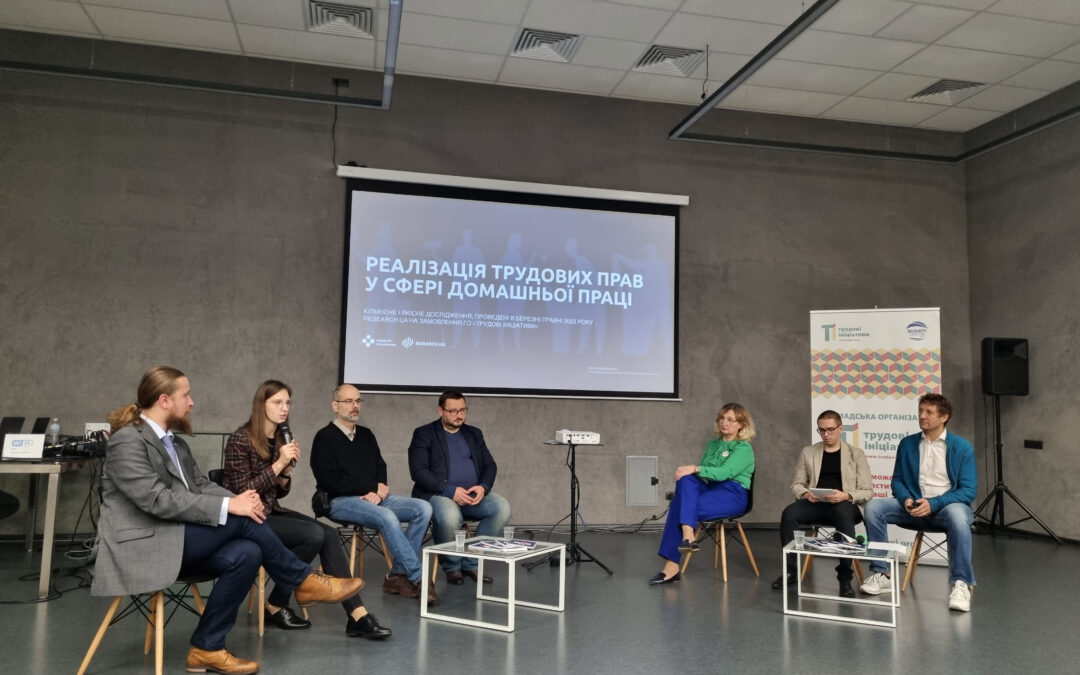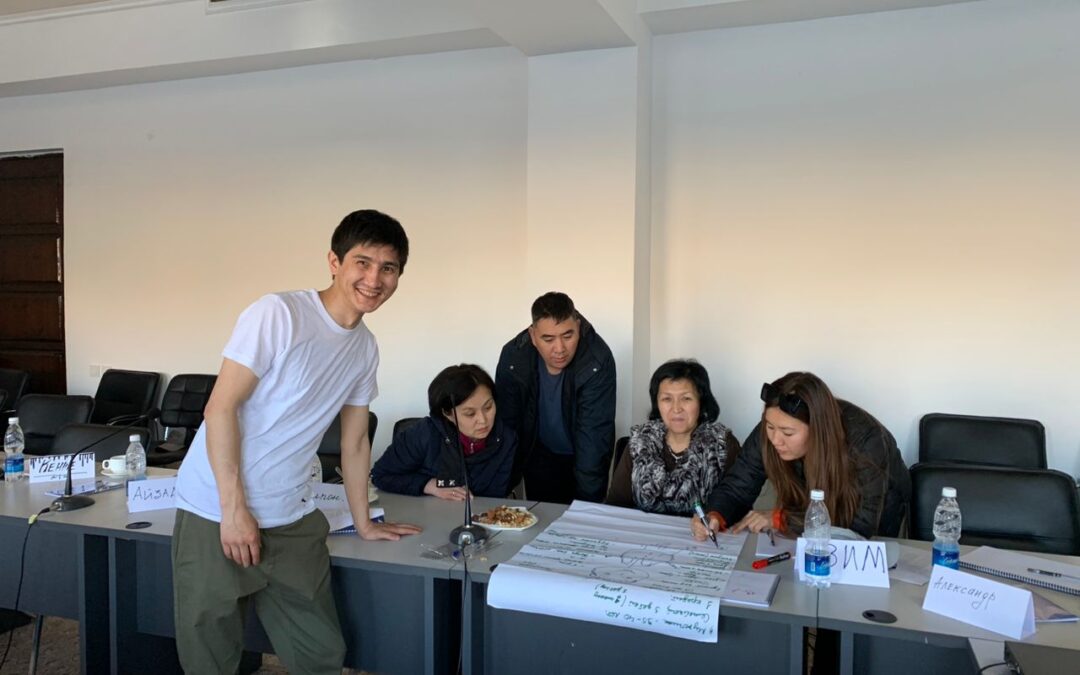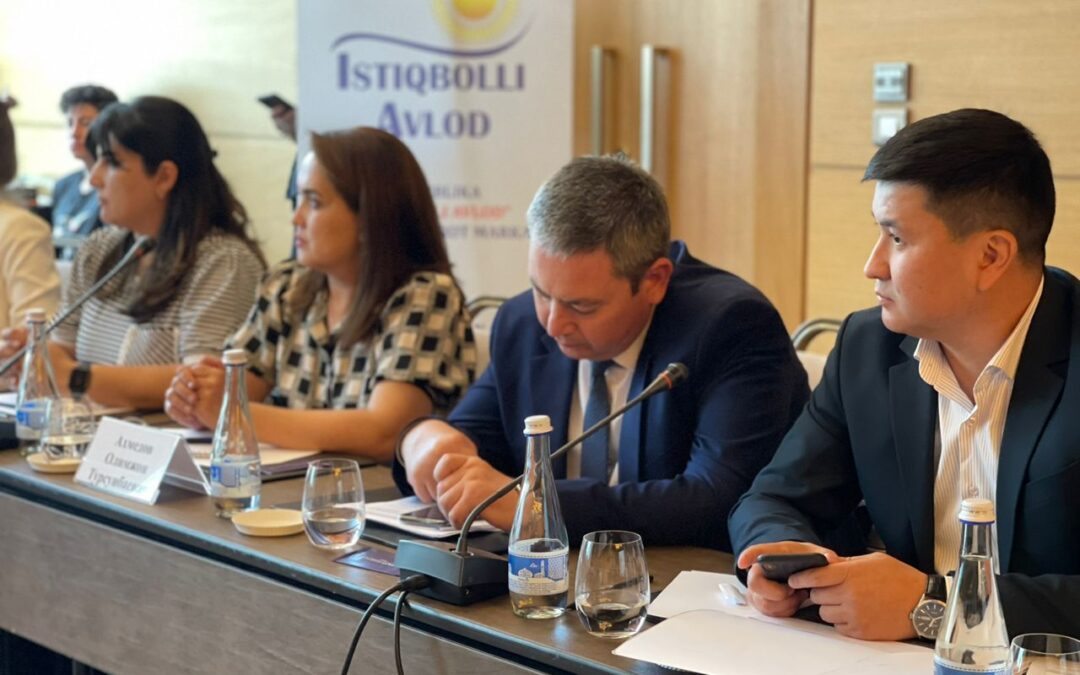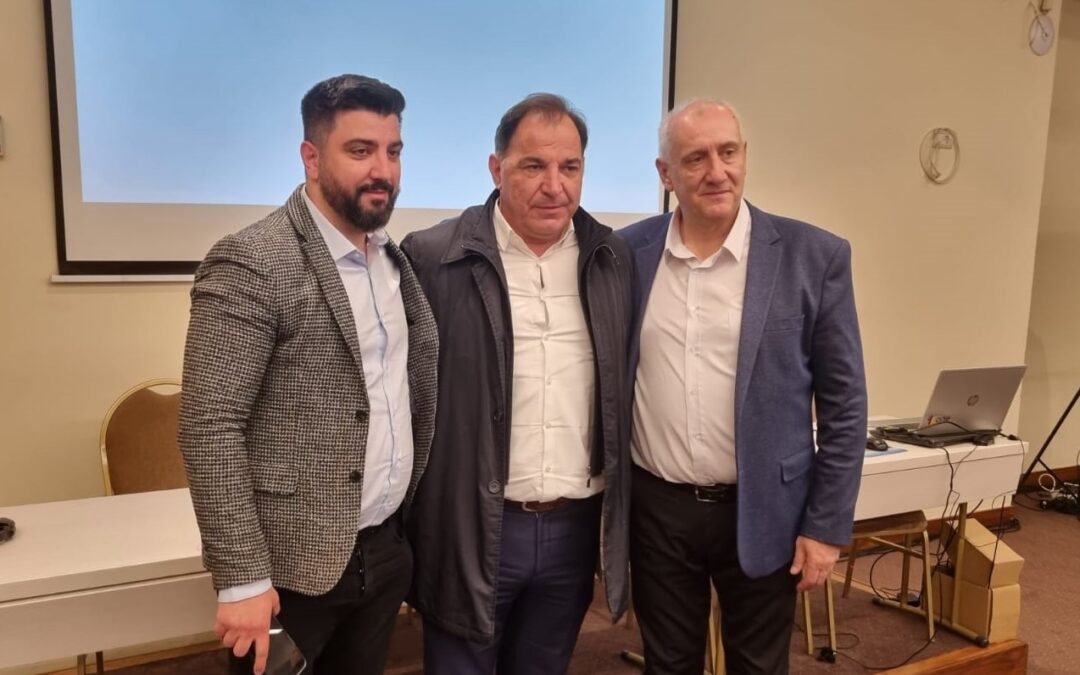
Nov 30, 2023
A new survey—the first in Ukraine to evaluate domestic workers’ working conditions—found that working without contracts and formal recognition has left most survey respondents victim to low pay, wage theft, confusion about employment status, exclusion from the country’s pension system and minimal capacity to exercise their right to freedom of association.
“What kind of pension will we have? God grant that it will be at all,” said survey respondent Kateryna (last name withheld for privacy).
Survey results documenting the pitfalls of domestic worker informal employment was presented to an in-person and virtual gathering of domestic workers, employment agencies and national union representatives last month. Survey results presented to event attendees—who included representatives of the new domestic worker organization, United Home Staff (UHS) and Tetiana Tsyba, Ukraine Member of Parliament and head of the parliamentary working group on proposed domestic worker law Number 5695.
Most survey respondents reported working without the legal protections and pension benefits afforded to formally recognized workers. While some were employed under various forms of contracts—including employment agency contracts (5 percent), civil law contracts (12 percent) or employment contracts (22 percent)—more than 60 percent said they were working without formal terms and conditions of employment.
Additional findings include:
- Almost 60 percent reported wage theft or insufficient compensation for work performed.
- Almost half said they do not get pay increases for overtime or weekend work; a quarter said their employer encourages overtime work without additional pay.
- Almost half said they do not receive paid vacation time.
- 60 percent were unaware of trade unions or other organizations that can represent or otherwise assist domestic workers.
- Most (69 percent) have worked informally throughout their careers, making them ineligible for Ukraine’s pension system.
Many internally displaced people who lost work because of war have become domestic workers, including those previously employed as university professors and schoolteachers. Of those surveyed, more than 60 percent working without a contract reported lower wages during wartime.
The survey was sponsored by the Ukraine nongovernmental worker rights organization Labor Initiatives (LI), to raise awareness of challenges in the sector for workers, support the country’s legislative efforts to formalize domestic work and encourage unions to organize domestic workers. With Solidarity Center support, LI supplies legal and other assistance to Ukraine’s workers and unions.

Jun 20, 2023
Recognizing that increased numbers help unions better advocate for worker rights and negotiate wages and working conditions with Kyrgyzstan’s employers and government, 28 union activists joined the Solidarity Center’s Organizing School, a four-part program that began in March. The school drew participants from construction, informal trading, public service, taxi and textile sectors, many of whom are already successfully putting their new skills into practice.
“By emphasizing practical skills, fostering authentic communication and providing ongoing support, this initiative is contributing to a stronger labor movement and empowered organizers who can bring about positive change in their workplaces and communities,” says Solidarity Center Program Officer Elena Rubtsova.
Early successes of the program include establishment of a union savings’ program, “Zymyryk-Invest,” by the union representing construction workers, which has already attracted dozens of new members, and expansion of the taxi drivers’ union, Kabylan, into Kyrgyzstan’s fourth largest city, Karakol, through use of a new, dedicated WhatsApp chat group. Although Kyrgyzstan’s labor law does not specifically protect the rights of workers on digital platforms, it allows self-employed taxi drivers to unite within pre-existing trade unions.
Between training sessions, organizing school participants practiced their new skills, including strategic communications, and benefited from group and Solidarity Center support.
“This training helped me understand that speaking from the heart and using our own words resonates more effectively with others,” says Kabylan President Ulan Cholponbaev.

May 26, 2023
A milestone convening in Tashkent last week brought together stakeholders from Kazakhstan, Kyrgyzstan and Uzbekistan government ministries and agencies, non-governmental and civil society sectors, and international organizations as a first step in developing a joint action plan to combat forced labor and advance worker rights in the region. Worldwide, 28 million people were reportedly trapped in forced labor in 2021.
The May 22 conference highlighted labor inspectorates’ role in protecting worker rights and combating forced labor in the region. Solidarity Center supported the event, which was organized in collaboration with “Partnership in Action,” an international NGO network of more than 30 Central Asian organizations, Kyrgyzstan’s Migrant Workers Union’s partner organization “Insan-Leylek” and Uzbekistan’s Istiqbolli Avlod.
“There is a crucial need for regional cooperation in labor inspections, because migration patterns are constantly changing,” says “Insan-Leylek” leader Gulnara Derbisheva.
Recognizing the importance of collective action, the conference hosts provided a forum for representatives of labor inspectorates from Kazakhstan, Kyrgyzstan and Uzbekistan to share their expertise and experiences within their respective countries. Government representatives from each of those countries reiterated their commitment to labor inspectorates working cooperatively with one another and with the region’s worker rights defenders to fight labor exploitation and promote safer working environments and dignified work for all.
Topics included international standards related to the work of inspectorates, issues surrounding forced labor in Central Asia and the importance of labor inspections given the region’s unique challenges. Participants identified a severe shortage of labor inspectors—Solidarity Center research finds that 250 labor inspectors oversee 280,000 legal entities employing 6.5 million people in Kazakhstan, 30 inspectors oversee thousands of enterprises in Kyrgyzstan and 315 inspectors oversee 578,000 registered entities in Uzbekistan—and discussed restrictions on inspectorates’ effectiveness. Although the International Labor Organization (ILO) standards specify that inspections be conducted without prior notification, all three countries require prior consent and advance notice for inspections and exclude small businesses from inspection mandates. Kyrgyzstan and Uzbekistan are currently considering legislative changes to rectify such loopholes.
“The outcomes of the conference have the potential to transform labor protection, ensuring safer and fairer working conditions for everyone in the region,” says Solidarity Center Europe and Central Asia Regional Program Director Rudy Porter.
According to ILO data, some 2.3 million women and men around the world succumb to work-related accidents or diseases every year, including 340 million victims of occupational accidents and 160 million victims of work-related illnesses. The ILO reports 11,0000 fatal occupational accidents annually in the 12-member states comprising the Commonwealth of Independent States—Azerbaijan, Armenia, Belarus, Georgia, Kazakhstan, Kyrgyzstan, Moldova, Russia, Tajikistan, Turkmenistan and Uzbekistan—but points to “gross underreporting” of occupational accidents and diseases in the region.

May 11, 2023
The Nigerian working group of a campaign led by the Organization of Trade Unions of West Africa (OTUWA) is collaborating on a regional campaign demanding more investment by governments in the health of their citizens. OTUWA represents trade union national centers in the 15 West African countries comprising the Economic Community of West African States (ECOWAS).
Addressing journalists at a public event in Abuja, Nigeria working group coordinator Dr. Ayegba Ojonugwa, last month warned that governments must increase health workers’ wages and improve their working conditions—including safety—to staunch the outflux of health workers from the beleaguered sector.
“We are here today to further advocate that health care is a human right,” said Ojonugwa, who noted that West Africa’s governments are not implementing the 15 percent minimum annual budgetary health allocation to which African heads of state agreed in the landmark 2001 Abuja Declaration. Currently, no country in the region achieves this percentage and Nigeria’s health care indicators are some of the worst in Africa—in part because medical professionals are in such short supply there.
In Nigeria, OTUWA’s “Health Care Is a Human Right” campaign—launched in Abuja in March 2021—is supported by the International Federation of Women Lawyers (FIDA), the Medical and Health Workers Union of Nigeria (MHWUN), the National Association of Nigeria Nurses and Midwives (NANNM) and labor federations Nigeria Labor Congress (NLC) and Trade Union Congress of Nigeria (TUC).
In the region, the campaign is supported by OTUWA’s affiliates together with many of their health sector unions. A 2020 survey of 700 health workers living in Gambia, Ghana, Nigeria, Senegal, Sierra Leone and Togo provides a window into the region’s health-sector shortcomings and presents a raft of recommendations for ensuring the protection of health worker rights and effective, accessible health care for all.

May 2, 2023
Following a 136-day strike, Montenegro’s telecom workers are celebrating a collective agreement that reverses a 14-year wage freeze and interrupts more than a decade of alleged union-busting tactics by Crnogorski Telekom (CT), majority owned by Deutsche Telecom since 2005.
The agreement won by the Trade Union of Telecom of Montenegro (STCG) immediately increases workers’ wages by 15 percent and provides an additional 5 percent total wage increase through 2025. Workers also negotiated improved benefits, job cut limits and, for the first time, severance pay.
“The company could not claim any more that the wage increase was inadmissible, given that every year it distributed dividends to shareholders and paid bonuses to already highly paid managers,” says Burić. “Since 2008, their profit has exceeded half a billion euros,” he says.
CT last gave workers a pay raise in 2008, even though consumer prices in Montenegro increased more than 45 percent from 2006 through 2021, and workers have been carrying an increased workload. The company slashed jobs by almost two-thirds since Deutsche Telecom took majority ownership, says STCG.
During its ongoing wage battle with the union, CT violated the country’s labor law by threatening to abolish the union’s collective agreement and refusing to negotiate with workers’ democratically elected leaders, say unions.
The agreement was won in spite of CT’s effort to violate numerous fundamental labor rights in the most egregious way,” says STCG President Željko Burić.
Solidarity support for STCG’s campaign was provided in Montenegro by the Union of Free Trade Unions of Montenegro (UFTUM) and its affiliates. Other union and worker rights organizations supporting the campaign included the Albanian Telecommunications Union SPPTSH, Alliance One Telekom Union (OTU), the Croatian Telecommunications Union HST, the cooperation project of the European Trade Union Confederation (ETUC) under the European Commission with regional network Solidarnost, the Transport and Telecommunications Union of Serbia GS SITEL Nezavisnost, Germany’s Ver.di, ETUC, the Solidarity Center, the International Trade Union Confederation (ITUC) and UNI Global Union. STCG is an ITUC member and founding UFTUM member.





